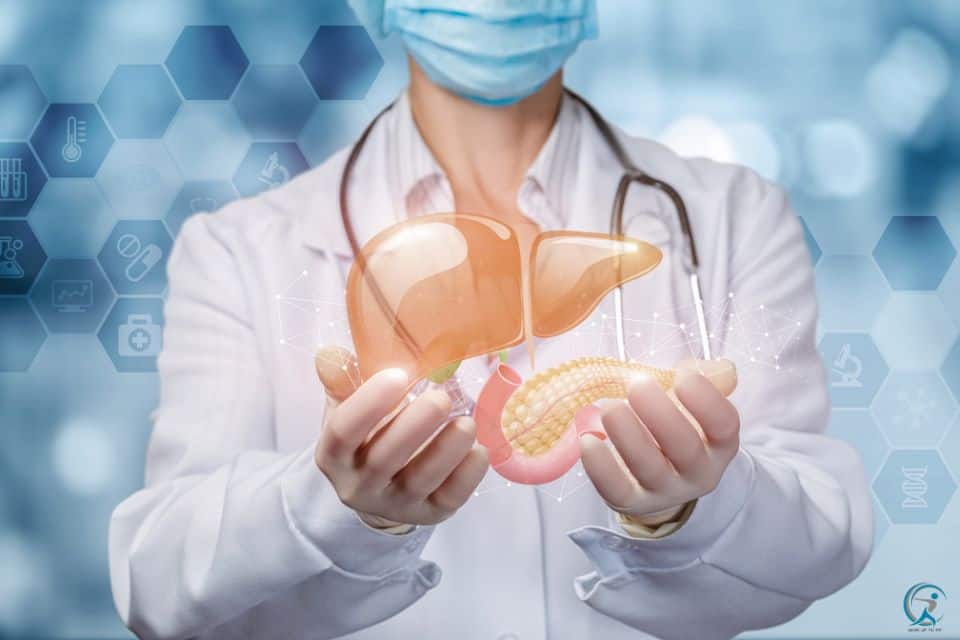10 Ways to Protect Your Liver! 😱 Uncover 10 easy, life-changing tips to protect your liver now! Don’t miss out – your health depends on it! 🚑💪
The liver is a vital organ that helps the body detoxify and process nutrients. It also produces bile, which aids in the digestion of fats and fat-soluble vitamins like A, D, E, K, and beta-carotene.
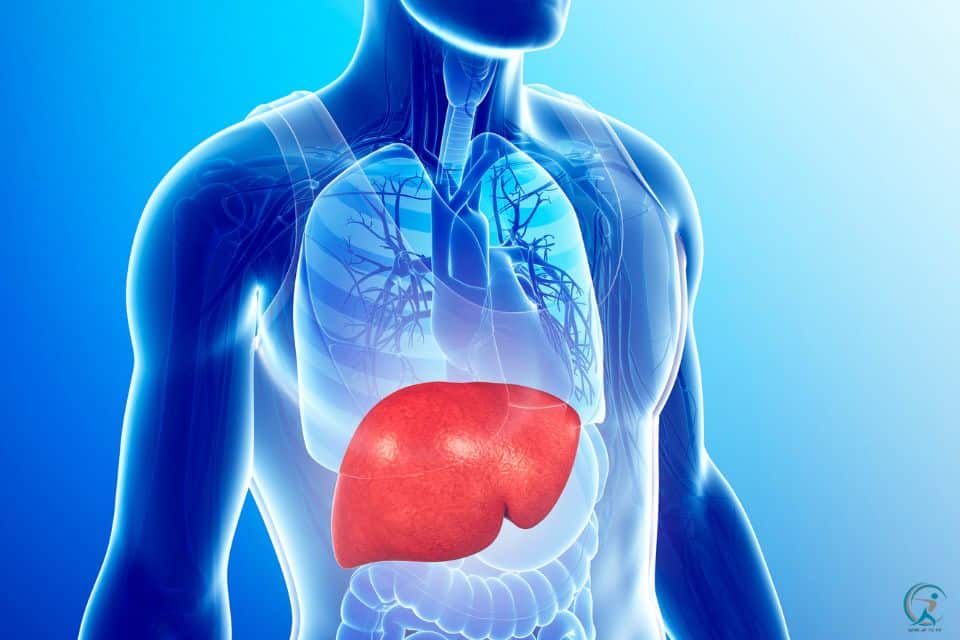
The liver can be damaged by alcohol abuse or exposure to toxins such as acetaminophen, carbon tetrachloride, lead, mercury, pesticides, solvents, and other chemicals. In addition, certain medications may cause damage to your liver.
Liver disease is among the most common causes of death in the United States. It’s also one of the easiest to prevent and treat. This blog post will review ways to protect your liver from damage.
If you have been diagnosed with hepatitis C, cirrhosis, fatty liver disease, or cancer, you must protect your liver from further injury.
Key Takeaways:
- Ashtanga yoga: a dynamic and invigorating form of yoga gaining popularity.
- Strengthens the body, improves fitness levels, and enhances flexibility.
- Brings calmness, clarity, and focus to the mind, promoting overall well-being.
- Creates internal heat, detoxifies the body, improves digestion, and boosts metabolism.
- Powerful tool for stress relief, promoting relaxation and peace.
- Promotes self-reflection, inner strength, and connection to higher consciousness.
Nutrition and Hydration
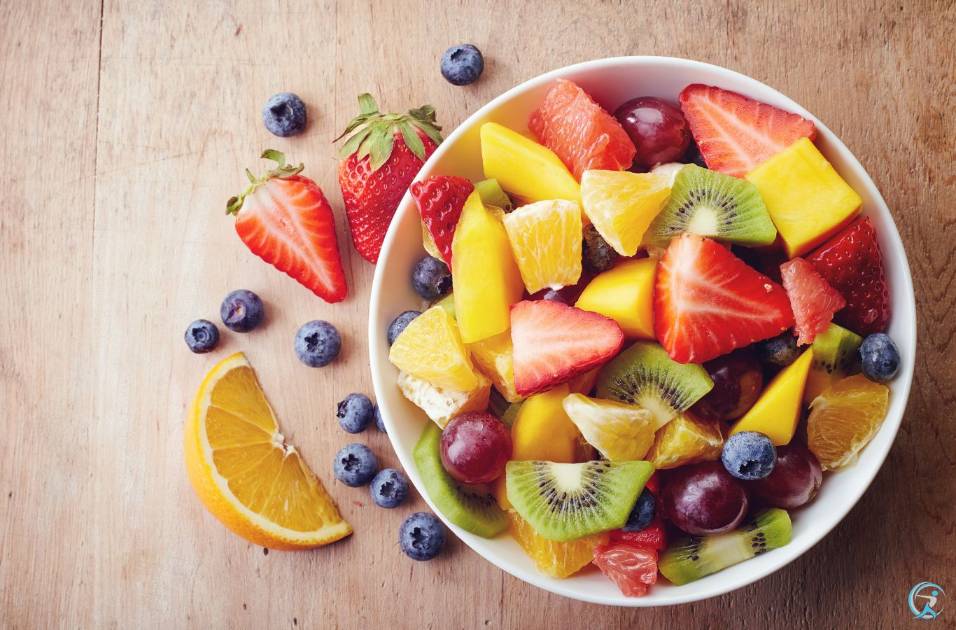
Consuming a diet rich in fruits and vegetables is essential for liver health. These foods are packed with antioxidants and phytonutrients that help in protecting the liver from damage. Drinking adequate water is also crucial as it helps in flushing out toxins from the system, aiding the liver in its detoxification process.
Avoiding Harmful Substances
Avoiding or limiting the intake of alcohol and other harmful substances like excessive caffeine and certain medications is necessary for maintaining liver health. Exposure to toxins can lead to liver damage, hence it is advised to be cautious with the consumption of substances that might be harmful to the liver.
Drink lots of water

Water flushes out toxins from your system and provides hydration. Drinking enough water will improve your overall health and reduce stress on your kidneys. If you’re dehydrated, drink at least eight glasses per day. Aiming for about half of this amount in liquid form would be best.
Water has no calories; however, if you choose beverages high in sugar, they add extra empty calories without providing much nutritional value.
Most people generally need between 2.5 and 3 liters of fluids daily. Most adults require around 1 liter. Children usually need even more because their bodies lose more water when sweat.
Water helps flush wastes from the bloodstream into the urine. Fluid loss occurs as a result of sweating during intense workouts or illness. It’s also possible to develop low sodium levels due to excessive salt consumption.
Avoid smoking
Smoking damages cells throughout the body, especially those lining the lungs and airways. This leads to inflammation and scarring, making breathing more difficult. Smoking also increases the risk of heart attack and stroke. Cigarette smoke contains hundreds of harmful substances, some of them carcinogens.
Get regular exercise
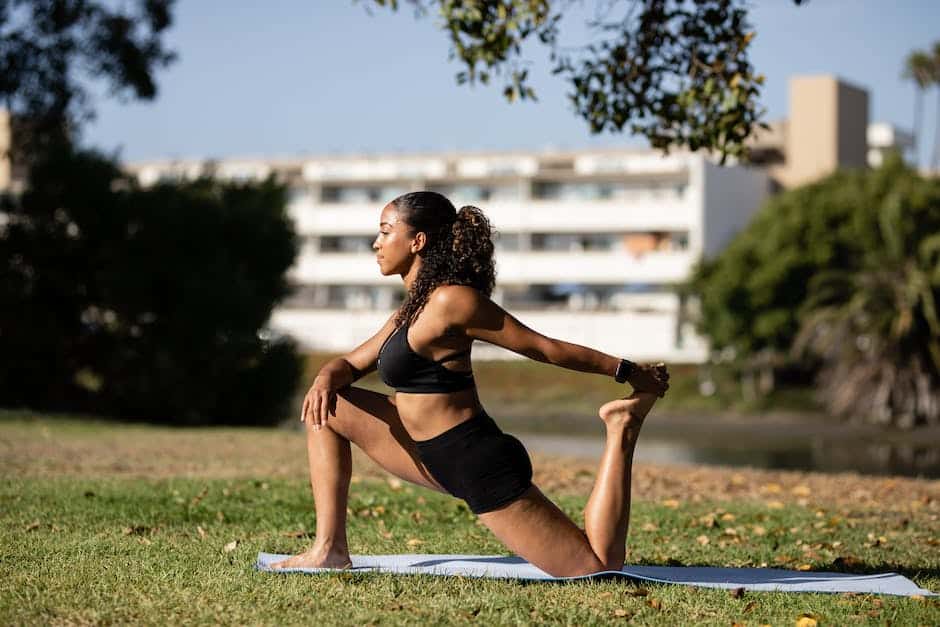
Exercise improves circulation, boosts metabolism, strengthens muscles, and burns off excess energy. Exercise also reduces stress levels and promotes relaxation. Regular physical activity can lower cholesterol levels and increase insulin sensitivity. Exercise helps in improving metabolism and circulation, which is essential for the optimal functioning of the liver. However, it is advised not to overdo strenuous exercises as it might harm the liver.
Get enough sleep

Sleep deprivation has many adverse effects on our bodies, but poor quality sleep can harm your liver too. Lack of sleep leads to increased levels of stress hormones, which can increase inflammation throughout the body. Inflammation contributes to chronic conditions like heart disease, diabetes, obesity, depression, anxiety, etc. Sleep deprivation also decreases growth hormone production, promoting muscle mass and improving metabolism.
Mindful Eating
Consuming foods that are beneficial for liver health, such as those rich in antioxidants, vitamins, and healthy fats, is advised. It is also recommended to avoid processed and red meats and opt for lean protein sources for a liver-friendly diet.
Protecting Your Kidneys
Kidney function depends upon many factors, including adequate fluid intake, proper kidney size, and normal urinary tract functioning.
The following tips can help you maintain optimal kidney health:
Keep track of how often you urinate.
Aim for six times each night. Urinating frequently indicates dehydration. Drink plenty of water before bedtime so you don’t have to get up several times to go to the bathroom.
If you wake up thirsty after sleeping well, try drinking an 8-ounce glass of cool water first thing in the morning.
Limit caffeine.
Caffeine is toxic to the kidneys. Avoid coffee, tea, soda, chocolate, and other caffeinated drinks. Caffeine stimulates the nervous system and causes increased perspiration. The resulting heat may cause dehydration.
Eat foods rich in potassium.
Potassium plays a crucial role in maintaining healthy blood pressure. It aids muscle contraction and nerve impulse transmission. Eat potassium-rich foods such as bananas, oranges, beans, peas, potatoes, spinach, tomatoes, avocados, milk, yogurt, cheese, nuts, seeds, whole grains, fish, poultry, eggs, and dark green leafy vegetables.
Reduce alcohol use.
Alcohol is a diuretic. Overconsumption of alcohol can lead to dehydration.
Maintain an ideal body temperature.
Try to avoid exposure to frigid temperatures. Cold weather slows down metabolic processes and interferes with blood flow.
Take time to relax after work.
Stress depletes mental resources that are needed for healthy sleep patterns.
Don’t skip meals.
Eating regularly keeps your digestive organs working correctly. Skipping meals makes digestion less efficient.
Drink plenty of pure filtered water.
Water provides essential nutrients and hydration without adding calories.
Stay away from sugary drinks.
Sugary drinks like soda pop, fruit juices, sports beverages, sweetened teas, and other sugar-laden soft drinks. These contain high fructose corn syrup, which is linked to obesity and diabetes. HFCS raises glucose levels in the blood.
This leads to higher insulin production, which increases fat storage. Sugar substitutes don’t have this effect. They provide only about half the sweetness in regular table sugar.
Avoid processed meats and red meat.
Processed meats contain nitrates and preservatives that contribute to cancer risk. Red meat contains saturated fats that raise LDL cholesterol levels. High cholesterol contributes to heart disease.
Choose lean meat.
I prefer lean beef, pork, lamb, chicken, turkey, and seafood over fatty ones. Lean proteins supply protein but not extra fat. Fatty proteins add flavor and texture but increase the calorie content.
Include some dairy products in your diet every day.
Milk supplies calcium, vitamin D, riboflavin, phosphorus, magnesium, zinc, and potassium. Yogurt adds probiotics, vitamins A and K, and minerals.
Use olive oil instead of butter.
Olive oil lowers total cholesterol and triglycerides while increasing HDL cholesterol. Butter does just the opposite.
Enjoy fresh fruits and veggies daily.
Fruits and veggies offer fiber, antioxidants, and phytonutrients. Fiber helps lower bad cholesterol and prevent constipation. Antioxidants protect against free radical damage caused by environmental toxins from alcohol abuse.
Latest Science-Based Data
1. Kombucha Tea for Liver Protection
- Source: Kombucha Tea: Microorganisms Communities Composition, Active Metabolites, Health Functions and Fermentation
- Publication Date: April 28, 2023
- Summary: Kombucha tea, fermented by a variety of probiotics, has been found to have health care functions such as antioxidant and liver protection.
2. Ficus pandurata Hance for Liver Protection
- Source: Liver Protection of a Low-Polarity Fraction from Ficus pandurata Hance
- Publication Date: February 22, 2023
- Summary: The low-polarity ingredients of Ficus pandurata Hance have been found to protect against acute liver injury by suppressing apoptosis and ferroptosis mediated by strengthened antioxidation.
3. Intensive Lifestyle Intervention
- Source: Long‐term health benefits of intensive lifestyle intervention in the Look AHEAD study
- Publication Date: July 5, 2021
- Summary: Intensive lifestyle interventions, including weight loss and physical activity, have been found to have several health benefits, including improvements in nonalcoholic fatty liver disease.
4. Herbal Remedies (Ocimum Canum)
- Publication Date: January 31, 2019
- Summary: Ocimum Canum, a herbal remedy, has been found to show significant protection against liver toxicity by ameliorating lipid peroxidation through free radicals scavenging activity.
FAQs
1. What are the best ways to protect your liver?
Eat a healthy diet, exercise regularly, limit alcohol consumption, avoid smoking, and maintain a healthy weight.
2. How can I reduce my risk of liver disease?
Avoid excessive alcohol, practice safe sex, get vaccinated for hepatitis, and avoid exposure to harmful chemicals.
3. Are there any specific foods that are good for liver health?
Yes, foods like green leafy vegetables, fruits, fatty fish, nuts, and olive oil are beneficial for liver health.
4. Can medications affect liver health?
Some medications can have adverse effects on the liver, so it’s important to take them as prescribed and discuss any concerns with your doctor.
5. How often should I get my liver checked?
It is recommended to get regular liver function tests as advised by your healthcare provider based on your individual risk factors.
Conclusion
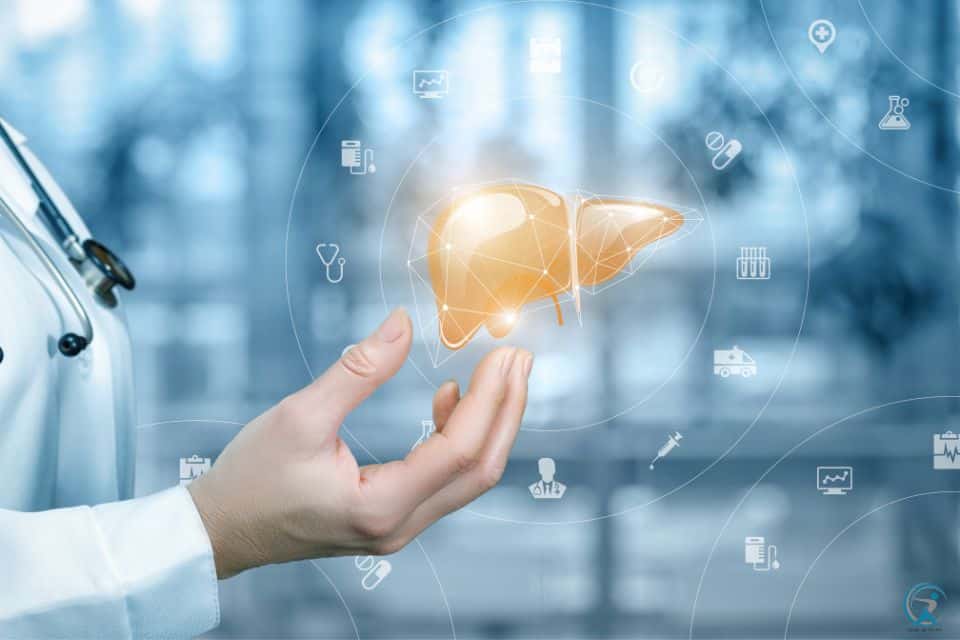
Taking care of your liver is crucial for maintaining overall health and well-being. In this article, we explored 10 effective ways to protect your liver and ensure its optimal function. From adopting a healthy diet to staying hydrated, exercising regularly to avoiding excessive alcohol consumption, these simple yet impactful steps can make a significant difference in safeguarding your liver.
Remember, your liver works tirelessly behind the scenes, detoxifying your body and keeping you healthy. So, why not return the favor? By implementing these 10 liver-protecting strategies into your lifestyle, you can promote longevity and vitality.
Now it’s your turn to take action! Start incorporating these practices into your daily routine and witness the positive impact they have on your liver health. Your liver will thank you for it! So go ahead, raise a glass of water, make smart choices, and give your liver the love and care it deserves. Cheers to a healthy liver and a vibrant life!
References
5 Ways to Be Kind to Your Liver | Johns Hopkins Medicine
Cirrhosis, in which liver cells are replaced with scar tissue, can prevent your liver from doing its critical job. So can nonalcoholic fatty liver disease, a fast-growing epidemic …
How to Protect Your Liver: 13 Steps (with Pictures) – wikiHow
4. Exercise regularly. Regular exercise not only helps you maintain a healthy body weight, but it also does good things for your liver, as well. Studies have shown that just 150 minutes …
How to Keep Your Liver Healthy – WebMD
Here are some ways to keep your liver healthy: Don’t drink much alcohol. It can damage liver cells and lead to swelling or scarring that becomes cirrhosis …
11 Foods That Are Good for Your Liver – Healthline
Here are 11 of the best foods to help keep your liver healthy. 1. Coffee. Coffee is one of the best beverages to promote liver health. Studies …
13 Ways to a Healthy Liver – American Liver Foundation
Exercise regularly. When you exercise consistently, it helps to burn triglycerides for fuel and can also reduce liver fat. Avoid toxins. Toxins can injure liver cells. Limit direct contact with …
As a veteran fitness technology innovator and the founder of GearUpToFit.com, Alex Papaioannou stands at the intersection of health science and artificial intelligence. With over a decade of specialized experience in digital wellness solutions, he’s transforming how people approach their fitness journey through data-driven methodologies.
